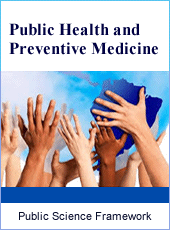Public Health and Preventive Medicine
Articles Information
Public Health and Preventive Medicine, Vol.1, No.2, Jun. 2015, Pub. Date: Apr. 21, 2015
Sexual Abuse: Perspective on a Despicable Social Scourge
Pages: 47-52 Views: 5790 Downloads: 1248
[01]
Samuel O. Chukwu-Okoronkwo, Department of Mass Communication, Abia State University, Uturu, Nigeria.
[02]
Nnenna E. Okoronkwo, Department of Pure and Industrial Chemistry, Abia State University, Uturu, Nigeria.
Sexual abuse is an issue of significant concern the world over. There may not be any limit to situations or circumstances where this despicable act can occur. It thrives especially on colleges, campuses and indeed across the entire strata of society. Among several other situations, sexual abuse can happen in the home by someone the victim knows, on a date, or by a stranger in an isolated place. Men, women, and children are all susceptible to sexual abuse or assault. Sexual abuse therefore emphasizes any unwanted sexual activity, with perpetrators using force, making threats or taking undue advantage of victims. It could also be seen as any form of non-consensual physical contact which includes rape, molestation, or any sexual conduct with a person who lacks the mental capacity to exercise consent. Although majority of identified victims of sexual abuse are women, men have equally been sexually abused in both domestic and institutional settings. This paper critically examines this social scourge called sexual abuse as well as its ramifying implications as a way of enlightening the public in general about this dehumanizing phenomenon. It also offers useful hints as a guide to forestall its occurrence, with recommendations too that could help a victim to be restored back to a healthy, fulfilling and productive living.
Sexual Assault, Sexual Abuser/Offender, Social Menace, Physical/Psychological Effect
[01]
Bejide, F. (2014). “Male Child Victim of Sexual Abuse in Nigeria”. Frontiers of Legal Research, 2 (1), 83-99.
[02]
Badejoko O. O., Anyabolu H. C., Badejoko B. O., Ijarotimi A. O., Kuti O., Adejuyigbe E. A. (2014). “Sexual assault in Ile-Ife, Nigeria”, in Nigerian Medical Journal, Vol. 55, Issue 3: 254 – 259.
[03]
Akwara A. F., Soyibo A. G. and Agba, M. S. (2010). “Law and Children’s Rights Protection: the Nexus for a Sustainable Development in Nigeria”. Canadian Social Science Vol. 6, No. 2, pp. 26 – 33.
[04]
Clark R. E., Clark J. F. and Adamec C. (2007). The Encyclopedia of Child Abuse, Third Edition. New York: Infobase Publishing.
[05]
Biodun, O. (2000). Knowledge and perception of child sexual abuse in urban Nigeria: Some evidence from a community-based project. African Journal of Reproductive Health, 4(2), 45.
[06]
Encyclopedia of Mental Disorders, retrieved from http://www.minddisorders.com
[07]
Joyce L. (2009). “Sexual Assault”. FAQ: U.S. Department of Health and Human Services, Office on Women’s Health, retrieved from http://www.preventelderabuse.org/index.html
[08]
Cornwell, R. (2014). “Bill Cosby: from America's dad to sexual predator”, retrieved from http://www.independent.co.uk/voices/comment/bill-cosbys-persona-goes-from-americas-dad-to-daterape-drugs-9877705.html
[09]
Awake (March 8, 1993). “Rape; A Woman’s Nightmare”. Benin City: Watch Tower.
[10]
“Violence against Women”, retrieved from http://www.womenshealth.gov
[11]
Violence against Women Online Resources (2010). “The Facts about Sexual Violence”, retrieved from http://www.vaw.umn.edu/documents/inbriefs/sexualviolence/sexualviolence.html
[12]
Wikipedia Free Encyclopedia

ISSN Print: 2381-778X
ISSN Online: 2381-7798
Current Issue:
Vol. 7, Issue 3, September Submit a Manuscript Join Editorial Board Join Reviewer Team
ISSN Online: 2381-7798
Current Issue:
Vol. 7, Issue 3, September Submit a Manuscript Join Editorial Board Join Reviewer Team
| About This Journal |
| All Issues |
| Open Access |
| Indexing |
| Payment Information |
| Author Guidelines |
| Review Process |
| Publication Ethics |
| Editorial Board |
| Peer Reviewers |


